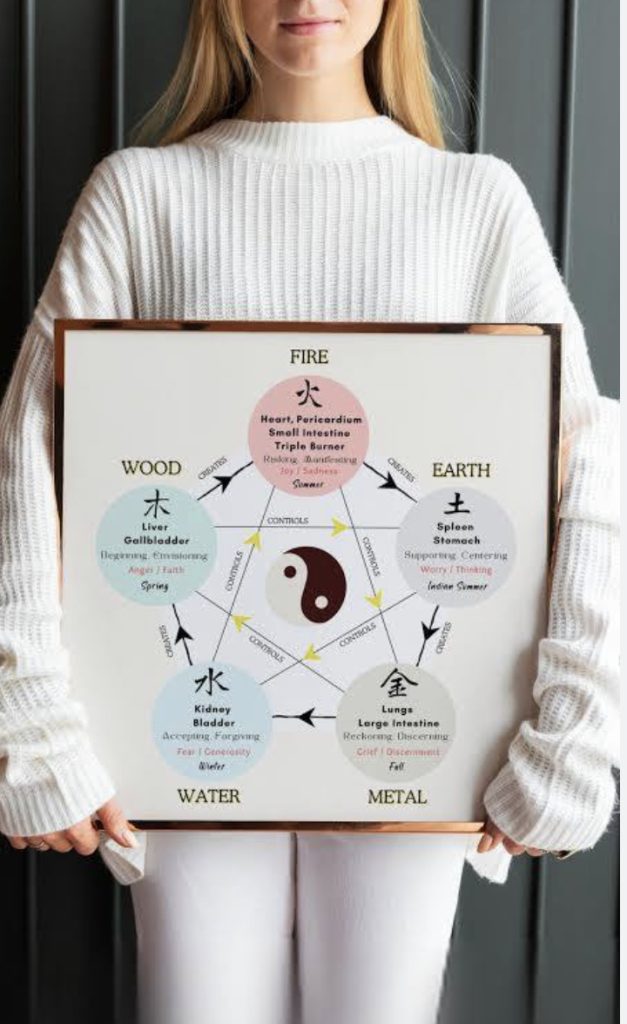Exploring the Five Elements in Traditional Chinese Medicine

In Traditional Chinese Medicine (TCM), the concept of the Five Elements, or Wu Xing, is a fundamental framework used to understand the relationships between different aspects of the natural world, including the human body. Each element – Wood, Fire, Earth, Metal, and Water – is associated with specific organs, emotions, seasons, colours, and more. By balancing these elements within the body, TCM aims to promote health and well-being. Let’s delve into each of the Five Elements and their significance in TCM practice:
- Wood (Mu):
Wood is associated with the liver and gallbladder organs in TCM. It represents growth, flexibility, and the energy of springtime. When the Wood element is in balance, one experiences a sense of vision, creativity, and assertiveness. However, imbalances in the Wood element can manifest as anger, frustration, or stagnation.
- Fire (Huo):
The Fire element corresponds to the heart, small intestine, pericardium, and triple burner in TCM. It symbolizes warmth, passion, and activity, much like the summer season. A balanced Fire element promotes joy, love, and communication. On the contrary, an excess of Fire may lead to symptoms like restlessness, insomnia, or anxiety.
- Earth (Tu):
Earth is associated with the spleen and stomach organs in TCM. It represents stability, nourishment, and the energy of late summer. A harmonious Earth element fosters feelings of grounding, nurturing, and balance. When imbalanced, individuals may experience worry, overthinking, or digestive issues.
- Metal (Jin):
The Metal element is linked to the lungs and large intestine in TCM. It embodies qualities of strength, clarity, and the energy of autumn. A balanced Metal element promotes inspiration, organization, and the ability to let go of what no longer serves. Imbalances in Metal may manifest as grief, sadness, or respiratory problems.
- Water (Shui):
Water corresponds to the kidneys and bladder in TCM. It symbolizes depth, wisdom, and the energy of winter. A balanced Water element cultivates resilience, willpower, and the ability to adapt to change. When the Water element is imbalanced, individuals may experience fear, insecurity, or issues related to the urinary system.
In TCM, the Five Elements are interconnected and in a state of constant interaction. Practitioners use this framework to assess a person’s constitution, diagnose imbalances, and develop treatment plans that aim to restore harmony within the body. By understanding and working with the Five Elements, individuals can cultivate a deeper awareness of their health and well-being from a holistic perspective.
In conclusion, the Five Elements in Traditional Chinese Medicine offer a profound insight into the interconnectedness of nature and the human body. By recognizing and harmonizing these elements within ourselves, we can strive towards a state of balance, vitality, and overall wellness.
Stay tuned for the next coming weeks, we will go into more detail about each of the individual elements.

Recent Comments